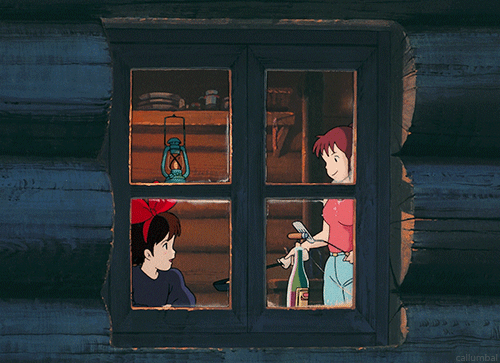In the next two weeks, we’re going to look to anime for a
rather serious topic: physical and mental illness. These are two subjects that
lots and lots and lots of media cover extremely poorly, some to the point of
offensive for different reasons. This week we’re going to focus on
physical illness.
Physical illness, particularly terminal illness, is often
used as a gimmick in films to portray a strong, sweet soul, pushing through
their lives despite their sickness, only to die in the film’s climax because
it’s “sad”. Films like this ring hollow to the extreme because it’s so
emotionally manipulative. It’s just a tear jerker ending to tug
at the heart strings. It’s cheap and its cliché.
Particularly egregious is Nicholas Sparks’ Walk to Remember, partially because we never see the horrible reality of our
main heroine’s illness. We barely see any symptoms or hospital rooms. Our main
character looks pretty, acts strong, and goes quietly into that good night
without much kicking at all. This is not the way to write physical illness.
Physical illness is often debilitating, painful, and has a clear effect on the afflicted and those around them. Actually, I think the Fault in our Stars
did this well because it focused on Hazel’s daily struggle with cancer. It was
everywhere, from the pills and her oxygen tank to the hospital visits. Your
mileage may vary on how Fault in our Stars handles other things but that’s a
topic for another time.
I bring this up, because anime does this kind of thing too:
regularly. Plenty of anime end with a death from a physical illness just to
make you cry. It’s pure emotional manipulation without showing any of the
harder parts of illness. But Your Lie in
April is one anime that handles sickness well.

Yes, it’s is easy to see Kaori as the suffering but strong
heroine at the beginning. A manic pixie dream girl who’s going to help our main
hero change. But she isn’t just an inspirational figure. She’s loud and brash,
living life impulsively because of her illness. To hell with what anyone else
thinks. She wants to get the main character to play a duet with her since she
has admired him as a pianist and she’ll do anything to push him onto the stage.
She honestly has a lot of character that is not based around our leading guy.

But of course, she’s sick, which you figure out pretty early
on, and her slow loss of health is not an easy or gentle thing. As time passes
she starts snapping at her friends more as her emotions come unhinged. It
becomes clear that her bubbly personality was often a mask to hide her illness.
She takes more falls, her legs stop working right and we even get a
scene of her screaming and hitting her legs in the hallway, begging them to
stand. We see her seizing up on the hospital bed. Even her coloration grows
paler as the show goes on.

However, Kaori’s illness doesn’t define her. She is
bursting with personality outside of her eventual death. That’s one of the
keys: her illness affects her life in a variety of ways but it also doesn't dictate who she is. Its not just a one off note to make the audience cry but
she’s not just that sick girl we should feel sorry for. She’s a nuanced human
being beyond her struggles.
Because people who are sick aren’t just there to make people
cry or develop able bodied characters arcs. They get arcs of their own and they
are their own people, and Your Lie in April gives a stirring example of that
done right.
We’ll talk about mental illness in Your Lie in April next week. Until then, happy writing!

